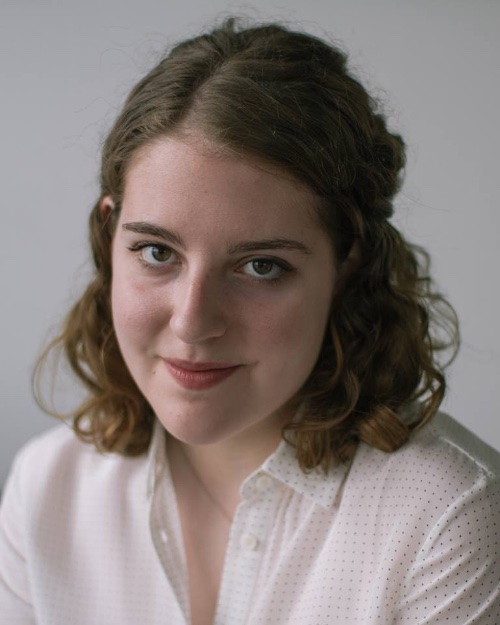4 Questions: Amy Bowman
This article is part of our series 50 Years of Disruption, in celebration of the Department of Theatre’s 50th Anniversary. In it, we’ll ask each participant four questions about themselves and their time at York.
1. Who are you?

2. What was your favourite moment during your time in the Theatre Department, and why?
It’s hard to pick a favourite moment from York, but I have so many fond memories of the first piece I ever stage managed for PlayGround, called Dead Flag. I met some of my closest friends in that ensemble, and learned that I can, when needed, kind of pretend to be a stage manager, which has come in handy in other moments of my life. It was a brilliant mess of a piece, but I wouldn’t change a thing about where it lead me.
3. What comment, quotation, statement, or action that a professor—or classmate—offered had the greatest impact on you?
It’s hard to go through the Playwriting and Dramaturgy series of courses and not be profoundly changed by Judith Rudakoff’s motto: “flexible and hilarious”. I struggle with over-thinking everything and taking everything too seriously and when I stop, breathe, and think, “flexible and hilarious”, I feel like I immediately have a clearer head. It’s also a helpful approach when I’m about to try something (a voice audition, for example), because if you stay open to trying something that might seem a little outside the box, magic can happen. Or it’s a total disaster but then, hey, hilarious story!
4. Is there a way you incorporate a particular aspect of your theatre training in your current work?
My dramaturgy studies totally influenced how I approach work of any kind, be it office administration or on a film set. I hope I’m explaining this clearly, but when you work as a dramaturg with a number of different playwrights, you’re able to learn how to communicate effectively and efficiently with all kinds of people. Your brain learns to adapt to another’s way of thinking, essentially. Additionally, my goal in anything I do is to make the work the best it can be, and that means choosing the right idea for the job as opposed to advocating for my idea just because it’s mine. We’d be in a much better place if everyone thought like a dramaturg.
